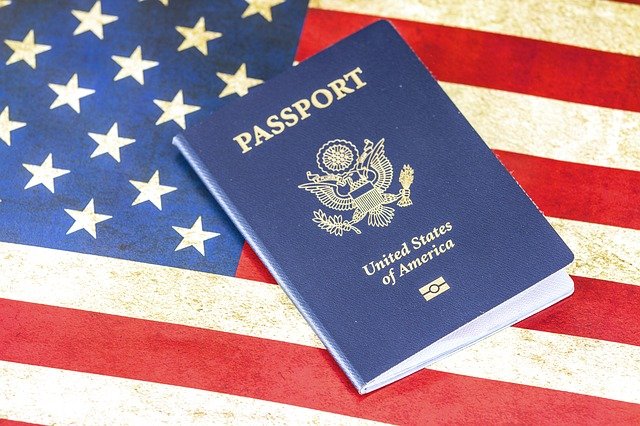Canadian Healthcare Insurance Facts and Health Insurance Requirements for Canadian Visa Immigration
While you will find no vaccinations needed for Canada immigration, there are a few vaccinations recommended by the Centers for Disease Control and Prevention (CDC) and the World Health Organization (WHO).
What Vaccinations are Importance for Canada Visa Migration?
The recommended vaccines by CDC and WHO include hepatitis A, hepatitis B, rabies, meningitis, polio, measles, mumps and rubella (MMR), Tdap (tetanus, diphtheria, and pertussis), chickenpox, shingles, pneumonia, and influenza.
Medical Exam and Health Requirements for Canadian Immigration
If you’re planning to come quickly to Canada and stay at under 6 months, that you do not need a medical examination (unless your particular job requires one). While you will find no Canadian vaccination immigration requirements, any visitor, student, or worker staying more than 6 months will typically have to undergo a medical exam when you yourself have lived at the least 6 months in a line in the past year in among the identified countries listed on the Government of Canada site.
In the event that you need a medical exam, you will undoubtedly be likely to fill in a medical questionnaire and undergo an actual test, which include measuring your weight, height, testing your hearing and vision, taking your blood pressure, feeling your pulse, hearing your heart and lungs, feeling your abdomen, checking how your limbs move, and taking a look at your skin. Sometimes, medical examiners could need to examine your breasts, but a glance at your genitals and the rectal area is not just a the main immigration medical exam. X-rays are often required depending on your own age.
Your medical exam can only be done by a panel physician approved by Immigration, Refugees, and Citizenship Canada.
For your appointment, make sure you bring:
- Proper ID (with photograph and signature)
- Eyeglasses or contact lenses (if applicable)
- Medical reports or tests for any previous or existing medical conditions
- Medical Report form (IMM 1017E) (may be sent to you as part of your visa and work permit application process)
- List of current medications
- Four recent photographs
Your medical exam is valid for twelve months.
Restrictions on Health Products
Keep in mind that there might be some requirements and restrictions on certain prescription drugs. For detailed information read Health Canada’s Guidance Document on the Import Requirements for Health under the Food and Drugs Act and its Regulations.
Canadian Healthcare Costs
Canada spends a lot on its healthcare and is among the top spenders in the Organization for Economic Co-operation and Development (OECD). More than 11% of Canada’s Gross Domestic Product (GDP) is spent on healthcare – that is an average of more than 6,000 CAD (4,515 USD) per Canadian. The cost of public healthcare continues to increase each year, having already grown an incredible 70% for Canadian families over a period of two decades.
Why is Canadian Healthcare So Expensive?
Some find it difficult to use the term “free” when describing Canada’s healthcare system because it is not actually free: taxpayers pay a lot for universal healthcare, as outlined above. In fact, Canada’s healthcare is one of the most expensive systems in the world. This is the price they pay for “free” universal healthcare for all and their system.
Canadian Healthcare Facts
While this section so far has touched on a few of Canada’s healthcare system pros and cons, here is a recap of all of the positives and negatives when it comes to the Canadian system.
Pros
- Universal healthcare– Canada’s free healthcare system strives to provide equal services for all so long as they are a Canadian citizen or permanent resident. Pensioners also receive healthcare in this country.
- Quality healthcare – Canada is consistently ranked as one of the countries with the best healthcare system in the world due to its care and quality.
- Educational programs – These programs are for seniors and they teach the general public how to prevent injuries and inform them about health risks. They are funded by the government. This helps Canadians stay aware and healthy and ultimately reduces healthcare costs.
Cons
- Unequal– As much as the Canadian healthcare system works towards providing equal and quality service for all, there has been evidence that minority groups such as the LQBTQ community and refugees receive less than satisfactory healthcare service, especially those in poverty.
- Wait times– Wait times to see a doctor and specialist in Canada are longer than the average wait times in other developed countries. Read more about average wait times to see a doctor below.
- Limited coverage – There is limited coverage on things like mental and oral health, some forms of therapy, assistive devices, and sex reassignment surgery.
- Expensive– Canada is one of the top-spending OECD countries when it comes to healthcare, spending well-above the OECD average. It is Canadian taxpayers who pay for this with the average person spending more than 6,000 CAD (4,515 USD) a year.
- Accessibility in rural areas – Because Canada is such a large country, funding goes to central cities. Other parts of Canada, however, do not get sufficient resources, forcing people from rural areas to have to travel to get adequate healthcare.






